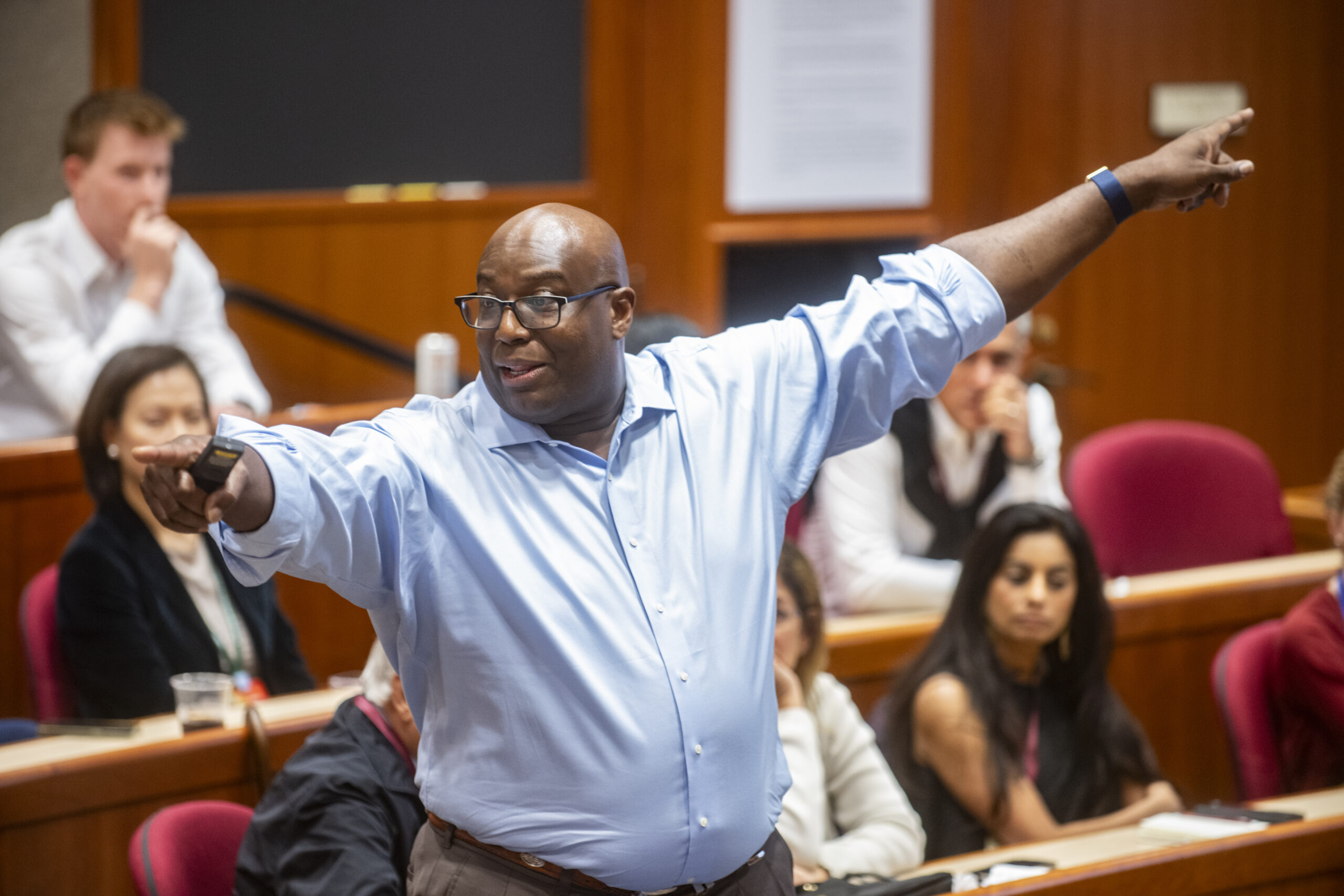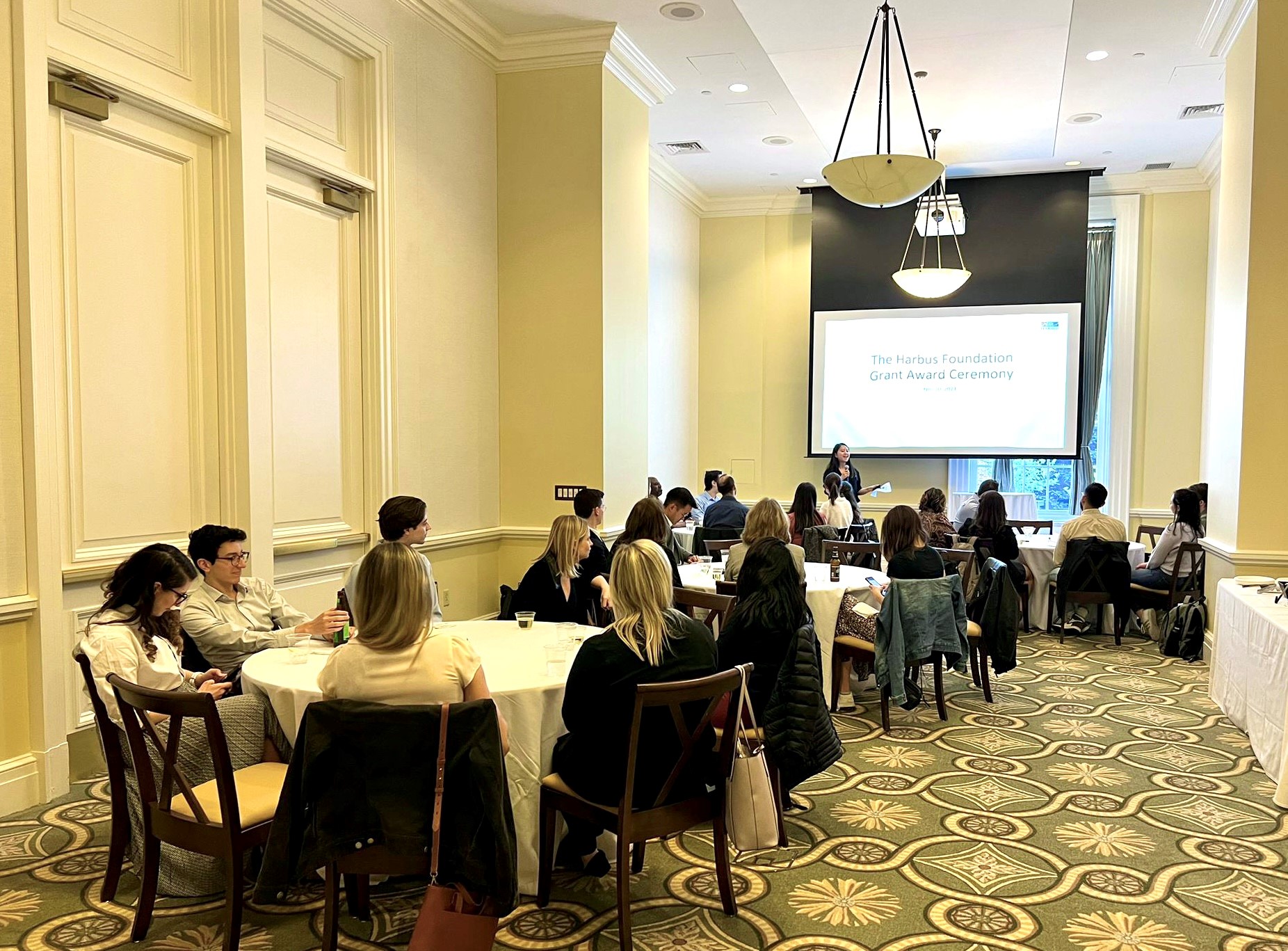

On April 20, four teams of Harvard students awarded unrestricted grants worth $15,000 each to four Boston area nonprofits in the areas of education, journalism, and literacy. This grant ceremony was the culmination of a 6-month venture philanthropy program of the Harbus Foundation. Starting in October 2022, 23 students from the Harvard Business School, Harvard Kennedy School, Harvard Graduate School of Education, and the Harvard Divinity School worked to source candidates for a request for application (RFA), narrowed down applications to a finalist, conducted due diligence, and presented a grant memo to a grant committee. Through this process, the Harbus Foundation partnered with HBS Senior Lecturer Deborah Winshel, HGSE Senior Lecturer Jim Honan, and current practitioner Varun Devatha to host trainings in sourcing, impact diligence, and nonprofit financial diligence. Ultimately, the Harbus Foundation awarded two grants for education, one grant for journalism, and one grant for literacy in partnership with a grant committee composed of HBS Senior Lecturers Deborah Winshel, Henry McGee, and Brian Trelstad, as well as Varun Devatha.
In education, students awarded grants to the nonprofits Latino STEM Alliance and Steps to Success. The Latino STEM Alliance, whose mission is “to inspire and empower under-resourced youth to achieve educational and career success in STEM fields,” has provided year-round instruction to over 4,000 low-income students of color since 2010. They hope to use the Harbus Foundation grant to build program staff capacity, expand locations, and develop new revenue streams.
Steps to Success's mission focuses on students of low-income families in Brookline, providing them with wraparound services and supporting their educational journeys – whether they be in elementary school, secondary school, or college. With support from the Harbus Foundation grant, they plan to grow youth stipends, college access, and career exploration in their programming.
In journalism, students awarded grants to the nonprofit Talking Information Center. As they have done for 45 years, the Talking Information Center and its 200 volunteers air radio readings of daily newspapers and periodicals for the 150,000 individuals with low vision in Massachusetts. The Harbus Foundation grant will help underwrite two hours of programming for the next year as well as expand the capabilities of their mobile application.
In literacy, students awarded to the nonprofit English At Large. English At Large supports adult immigrants with English literacy and navigating U.S. culture; in 2022, their 150 volunteers had supported 228 learners hailing from 45 countries. They hope to use the Harbus Foundation grant to catalyze a new literacy program catered to adult learners who do not read or write in any language, expanding their services to include basic literacy.
At the grant ceremony, students reflected on their experience in the Harbus Foundation. Many acknowledged the program’s unique endowment that created a real experience with meaningful consequences. Emma Strother (HKS) shared her experience: “Participating in the Harbus Foundation was a unique opportunity to interact with grassroots communities in Boston firsthand. Being a part of this program was a humbling and tangible experience, with real money on the line and a real impact at the end.”
Another student, Niklas Krakau (HKS), highlighted the importance of the Harbus Foundation program in helping them strengthen their skills and experience what venture philanthropy would be like as a potential career path: “This was an amazing experience to go outside of the academic classes we take to actually apply our learnings in a real, rather than hypothetical, context.” Andrew Chung (MBA 2024) agreed, adding on the value of meeting and working with like-minded students across the river: “It’s been really great to work with peers across schools in Harvard to give back to communities outside of our bubble.”
Nonprofits also shared their appreciation with the Harbus Foundation’s in-person diligence processes, which they stated made them feel comfortable and understood. Tony Wells, CSI Program Director at Steps for Success, commented: “I really enjoyed the opportunity to talk about ourselves beyond the paper. I felt like I was talking to people with our best interests at hand, and they made it easy for me to talk about issues that are very sentimental for me. I felt like I could share the heart of the program to them authentically.” Others shared gratitude for the site visits, a signature feature of the Harbus Foundation diligence process, stating that it provided a personal touch not often offered by funders in their experience.
Founded in 1997, the Harbus Foundation is a nonprofit entity independent from but closely affiliated with Harvard Business School. Grants for the Harbus Foundation program are funded by this eponymous entity, while the program is administered by student leaders of the HBS Impact Investing Club. The Harbus Foundation runs from October to April of every school year and is open to graduate students from any Harvard University school.